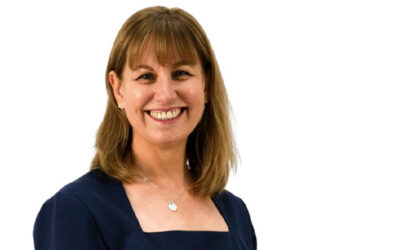Michael Rich, MD, MPH
Director, Digital Wellness Lab; Co-Director, Clinic for Interactive Media and Internet Disorders (CIMAID), Boston Children’s Hospital
Associate Professor of Pediatrics, Harvard Medical School
Dr Michael Rich is the Founding Director of the Digital Wellness Lab, Founder and Co-Director of the Clinic for Interactive Media and Internet Disorders, and an Associate Professor at Harvard Medical School and Harvard T.H. Chan School of Public Health. As Director of the Digital Wellness Lab at Boston Children’s Hospital, Dr Rich combines his 12-year experience as a filmmaker with rigorous scientific evidence to advise pediatricians, parents, and tech companies on optimizing child health and development in the digital ecosystem. He published The Mediatrician’s Guide: A Joyful Approach to Raising Healthy, Smart, Kind Kids in a Screen-Saturated World in 2024. A specialist in Adolescent Medicine, he founded the Clinic for Interactive Media and Internet Disorders (CIMAID), the first evidence-based medical program addressing physical, mental, and social health issues associated with using digital technology. Among his awards are the Society for Adolescent Health and Medicine New Investigator Award and Iris Litt Visiting Professorship in Adolescent Health Research and the American Academy of Pediatrics Media Visiting Professorship, Holroyd-Sherry Award for contributions to knowledge addressing children’s and adolescents’ use of media, and the Adele Dellenbaugh Hoffman Award for excellence in the field of adolescent health.
We are the ones we’ve been waiting for
The children are not all right. But neither are we adults. Movies like “The Social Dilemma” and books like “The Anxious Generation” link rising levels of anxiety, depression, and suicidality among children and adolescents to social media and smartphones – but neglect to offer practical, evidence-based problem-solving. Instead, we seek retaliatory litigation against “Big Tech”, legislation that is draconian but easily hacked, even outright bans of certain social media or mobile devices from households, schools, or entire nations.
Don’t get me wrong, I am grateful that policymakers are paying attention to the well-being of our youngest, most vulnerable citizens but the deliberative processes of public policy are too slow to protect healthy human development. Newborns at the advent of social media are now adults. They have grown up in a digital environment that is immersive, hyperstimulating, isolating, and constantly accelerating. The rapidly evolving digital ecosystem has proven to be an environmental health influence, positive for some, negative for others. As happened with climate change, we are now reaping the unintended consequences of our technological advances.
Having practiced pediatric and adolescent medicine for more than 3 decades, I observed the rise in anxiety, loneliness, bullying, body image distortion, and depression well before the dawn of social media and smartphones But the way that some youth use interactive media has served as an accelerant and amplifier of their psychological struggles. We shall not retreat from demanding that policymakers and corporations improve our digital environment, but cannot rely on legislation, litigation, and negotiation to support and protect children growing up now. As parents, teachers, clinicians, and citizens, we must be the leaders who most directly affect young people’s development as healthy, productive, and empathetic humans.
As I recommend in The Mediatrician’s Guide: A Joyful Approach to Raising Healthy, Smart, Kind Kids in a Screen-Saturated World, we can implement the 3 Ms of digital parenting.
- MODEL: We must model mindful use of digital tools, balance screen time with “green time” off screens, and be present for and with them by putting down our devices and attending to their needs, thoughts, and dreams.
- MENTOR: We must treat digital devices, platforms, and applications as power tools, mentoring our children to handle them effectively, responsibly, and with respect for themselves and others. Because children move seamlessly between the physical and the digital, we must parent them in the digital space as proactively, respectfully, and compassionately as we do in “real life”.
- MONITOR: Aware of the vulnerabilities of children’s still-developing executive brain functions, parents must be able to monitor their digital behaviors. Although both parents and youth will resist this idea, it does not mean that parents must constantly observe their children’s digital lives, but their children’s behaviors will likely be more responsible and respectful because parents can. By keeping an open dialogue about their digital lives, when children encounter online material that confuses, upsets, or scares them, they will not hide it from their parents, but seek them out as trusted advisors.
Yes, it will be a difficult and dramatic change in all of our behavior, but…
“Yes, we can!” We have done it before with cigarettes, safety belts, and bike helmets. We cannot wait for others to legislate, litigate, and negotiate. We must parent, teach, and nurture our children to grow up healthy, smart, and kind. As we were all advised by an indigenous Hopi elder at the turn of the millennium, we are the ones we’ve been waiting for.





0 Comments